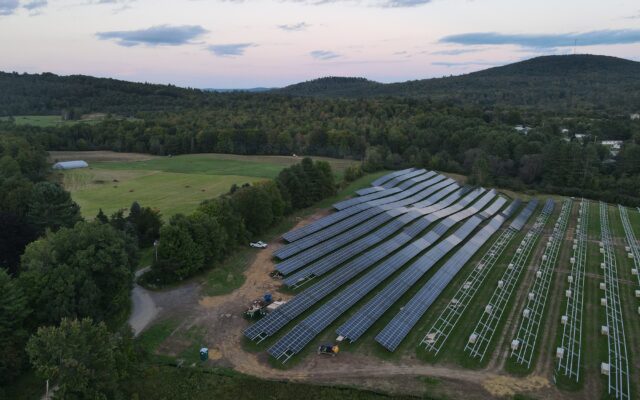
LD1347: A solar bill that benefits no one
By Chris Byers
A new amendment to LD1347 was drafted by those lacking understanding of how solar projects are actually developed and regulated in our state. The latest amendment to LD1347 was introduced last minute without a comprehensive review by the Energy, Utilities and Technology Committee, the rest of the legislature, and the input of citizens through a public hearing. No solar company who actually builds projects was consulted — rather, this bill was crafted by special interest lobbyists seeking to crush solar in Maine, for their own benefit, while making you think they are actually improving it. It’s quite the slight of hand happening in the halls of our legislature.
I traveled to Augusta to watch the debate on the House floor where lawmakers claimed that LD1347 would simply limit windfall profits while still promoting Maine’s solar industry. As the owner of a Maine-based solar company with 14 years of experience, it’s clear to me that this bill is designed to stop small-scale and community solar projects statewide.
Issue #1: Retroactivity
This bill retroactively modifies or tears up existing net energy billing contracts for any type of solar project. This would apply to operating community solar projects, but more shockingly it would apply to any small rooftop or ground mount project that residents and small businesses have purchased for their own benefit. Some of Maine’s most notable companies like Hannaford, Maine Health, and Bath Iron Works have invested resources in solar to save money—are we seriously contemplating allowing the Public Utilities Commission to change the compensation they receive at any time and telling current and future customers that the economics of their project is always subject to change? How is Maine “open for business†when it pulls the rug out from investment that it specifically invited?
Issue #2: Paralyzing restrictions on community solar
With so many restrictions on community solar, these arbitrary rules will end future investment and take away the benefit of economies of scale. The bill proposes that no more than 20 subscribers may participate, including a curveball requirement that one subscriber must consume at least 50 percent of the energy produced on site — the ‘anchor subscriber’ by default will be a commercial entity because no residential customer uses that much energy. But here’s the problem: the PUC does not allow residential and commercial customers to participate in the same community solar project. Projects with a 20-subscriber limit will leave residential customers in the dust. Community solar projects are especially beneficial to low and moderate income customers as they do not require any investment from subscribers. Instead of helping Maine’s residential ratepayers, this bill leaves us all behind.
Issue #3: Municipalities will be left behind
There is an exemption for municipalities to benefit from community solar by not limiting the number of accounts within a project, but the projects must be sited within the limits of the town, and the project must be “behind the meter†which means the project needs to be sited where there is load. Here we have another policy and technical impossibility: you can’t actually build community solar behind the meter because utilities cannot measure total solar production and allocate remaining credits to other subscribers. Even if the behind the meter requirement was modified, by disallowing projects to be sited on appropriate sites outside the municipality, municipalities will come to the conclusion that they cannot meet these stringent criteria.
Let’s be clear, I agree that net energy billing needs reform; I pay my CMP bill every month too, and I want to be a part of the solution in expanding solar while not burdening Maine’s ratepayers. But LD1347 is not a solution. These proposed changes are outdated, backwards, and keep Maine reliant on price volatile and polluting power sources, and it would have lasting adverse consequences for all of us.
Byers is the owner of Branch Renewable Energy based in North Yarmouth. He has worked on over 100 community solar projects across all parts of Maine. Combining over 14 years of solar industry experience with an expert knowledge of Maine’s regulatory and environmental frameworks, Byers takes pride in being an honest and competent solar project developer in the communities he works in.